-
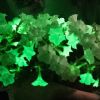 +23 +3
+23 +3Glow way! Bioluminescent houseplant hits US market for first time
Engineered petunia emits a continuous green glow thanks to genes from a light-up mushroom.
-
 +25 +6
+25 +6Floral Time Travel: Flowers Were More Diverse 100 Million Years Ago Than They Are Today
Angiosperm flowers reached their greatest morphological diversity early in their evolutionary history
-
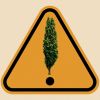 +36 +7
+36 +7How plants communicate with each other when in danger
The study marks the first time researchers have been able to “visualize plant-to-plant communication,” the senior author of the study said.
-
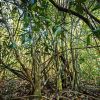 +43 +6
+43 +6Plan to save world's only wild macadamia trees from extinction
Given the lack of genetic diversity in the farmed crop, the race is on to preserve wild macadamia trees to improve traits like disease resistance, size and climate adaptability.
-
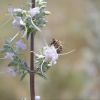 +15 +2
+15 +2Flowers pollinated by honeybees make lower-quality seeds
Honeybees are one of the most common pollinators. But their flower-visiting habits make it harder for some plants to produce good seeds.
-
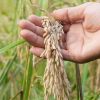 +18 +4
+18 +4CRISPR’d plant is resistant to the “cancer of rice”
Thanks to CRISPR, farmers may finally have a good defense against rice blast, a fungal disease so devastating, it’s known as the “cancer of rice.”
-
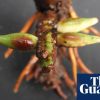 +25 +2
+25 +2‘Mind-boggling’ palm that flowers and fruits underground thrills scientists
New species named Pinanga subterranea as Kew botanists admit they have no idea how its flowers are pollinated
-
 +30 +3
+30 +3Friday essay: peyotes in suburbia – the secret world of Sydney's psychoactive cacti growers
They tend backyards brimming with cactus varieties, consuming the produce. Prudence Gibson meets a hidden group of gardeners and ponders the allure – and – danger of psychoactive plants.
-
 +29 +2
+29 +2An epic global study of moss reveals it is far more vital to Earth's ecosystems than we knew
Data from 123 sites across all continents, including Antarctica, show mosses affect all major soil functions critical for sustaining life on Earth.
-
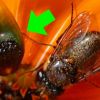 +15 +2
+15 +2This Incredible Flower Makes Fake Flies, And We Finally Know How
A flower's ability to mimic the sexually attractive traits of pollinators to lure them to its nectar has long fascinated scientists.
-
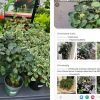 +17 +4
+17 +4Best plant identification apps for mobile in 2023
Use the five best plant identification apps we tested to identify plants along your trail walks, keep away from harmful plants while camping or set up your dream garden
-
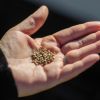 +4 +1
+4 +1We need native seeds in order to respond to climate change, but there aren't enough
In the wake of wildfires, floods and droughts, restoring damaged landscapes and habitats requires native seeds. The U.S. doesn't have enough, according to a report released Thursday. "Time is of the essence to bank the seeds and the genetic diversity our lands hold," the National Academies of Sciences, Engineering and Medicine (NASEM) report said.
-
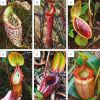 +20 +1
+20 +1This Species of Carnivorous Plant Evolved Into a Toilet And Is Now Winning at Life
Some species of carnivorous pitcher plant, Nepenthes, have switched from capturing and digesting insects to absorbing animal poop for their daily dose of nutrients – and it's a switch that's proving very beneficial.
-
 +23 +2
+23 +2Ethereal New Plant Species Doesn't Use Photosynthesis - It's Found Something Sneakier
Cloaked by the shadows of enchanting Asian woodlands, strange growths can be seen peeking out from between leaf litter like the ghosts of long-dead flowers.
-
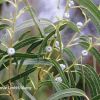 +27 +3
+27 +3Green electronics rely on materials that grow on trees
Compounds derived from eucalyptus and other plants are formulated into an ink for printing electronic components.
-
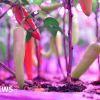 +24 +5
+24 +5'We talk to plants, they tell us if they are happy'
Agri-tech company Gardin uses sensors and artificial intelligence to see how well crops are growing.
-
 +1 +1
+1 +1In Guam, even the dead are dying: the US military is building on the graves of our ancestors
My beautiful home of Guam is being laid waste by a superpower – even the butterflies are in danger
-
 +19 +2
+19 +2Have a Drink: Ethanol Helps Crop Plants Survive Drought and Heat
However, as counterintuitive as it sounds, alcohol has the opposite effect on plants. A recent study published in Plant & Cell Physiology shows that pre-treating soil with ethanol significantly enhances crop plants’ drought tolerance — without genetic modification. The stakes are high for climate resilience in food systems.
-
 +21 +2
+21 +2Germany's pioneer 'edible city' on the Rhine
Andernach's city center has fruit and vegetable gardens that anyone can harvest for free. By making edible plants a feature of public space, this town is trying to change the way locals think about their food.
-
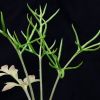 +12 +2
+12 +2Ferns Are Super Weird – And Their Genomes Are Even More Chaotic Than We Thought
There's something really peculiar about ferns.
Submit a link
Start a discussion




















